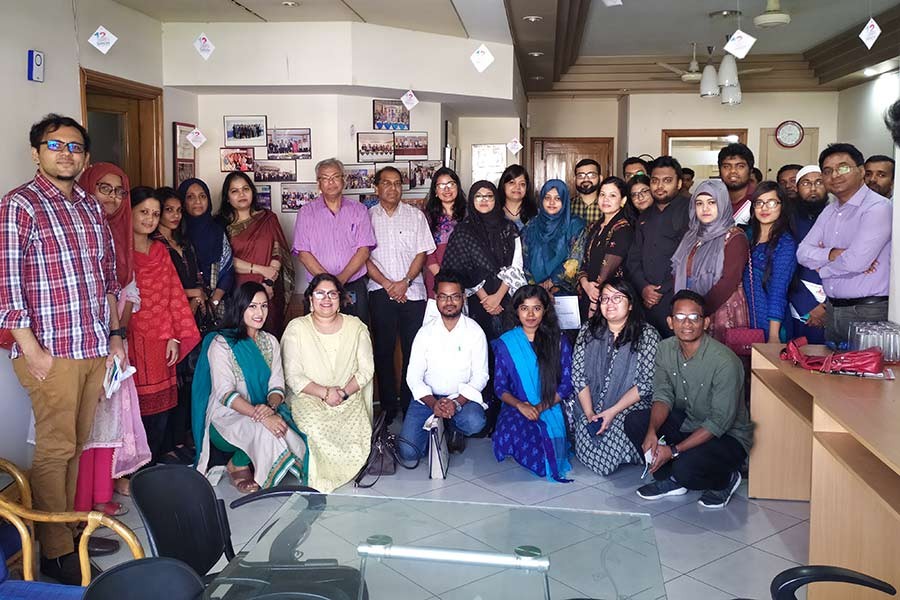South Asian Network on Economic Modeling (SANEM) SDG Centre hosted its first workshop on “Three Pillars of Sustainable Development Goals (SDGs)” on July 20, 2019 at SANEM office, Dhaka.
The workshop started with the introduction of the participants and opening remarks from Dr Selim Raihan, professor of Economics, University of Dhaka and executive director, SANEM, says a press release.
Dr Selim Raihan mentioned there is a knowledge gap regarding SDGs in every sphere, including the academic sphere. “It does not necessarily imply that we will be able to achieve something good in terms of SDGs just because we did well in millennium development goals (MDGs). SDGs are a whole other business. Our purpose is to assemble the academicians and policy makers so that we all can deal with it better,” he said.
Dr Sayema Haque Bidisha, research director of SANEM, conducted the first session titled ‘SDG: Social Issues’.
She said, “The basic difference between SDGs and MDGs is that the SDGs emphasised more climate issues, gender equality, peace, justice and other such stuff that were often neglected in other goals. SDGs are all about setting our priorities right.” “The health and nutrition issues are really important in the recent context of Bangladesh. If we can meet one goal, it can affect the possibility of meeting the other goals positively,” she also said.
Dr Bidisha recommended maintaining a proper database related to SDGs is integral to identify and analyse the problems. She talked about the importance of increasing expenditure on social sectors.
Gender sensitive industrial arrangements such as day-care centres need to be implemented through private sector investments and government needs to incentivise the private sector to take such steps, Sayema added.
‘SDGs: Economic issues’ — the second session of the workshop — was conducted by Bazlul Haque Khondker, professor of Economics, University of Dhaka and chairman of SANEM.
Dr Khondker said, “Inequality tends to make the situation in terms of poverty reduction. The existing model of growth is inadequate to reduce inequality as per the SDGs.”
Our rural poverty is falling at the expense of urban poverty. This is due to the migration of people from rural to urban areas, Bazlul added.
The third session—‘SDG and Environment’—was conducted by Dr AK Enamul Haque of Department of Economics, East West University.
Dr Haque said Bangladesh faces massive challenge in urban housing, less than 44 per cent live in permanent structures. Our urban transportation speed is below 7 kilometres per hour and only 37 per cent have access to piped water supply and 77 per cent have access to sanitary toilets, he added.
Dr Haque mentioned the problem in terms of solar energy is that it is not easy to use and it is also costly. The problem with wind energy is that it is not a constant source of energy because it depends on wind flow, he added.
Dr Haque shared US$ 30 billion was allotted for Bangladesh for Climate Action but the country has not been able to get most of those funds since its development and climate projects overlap. The Green Column Fund (GCF) only provides funds for climate based additional projects which would not be implemented otherwise, he explained.
The workshop ended with the closing remarks and distribution of certificates.


